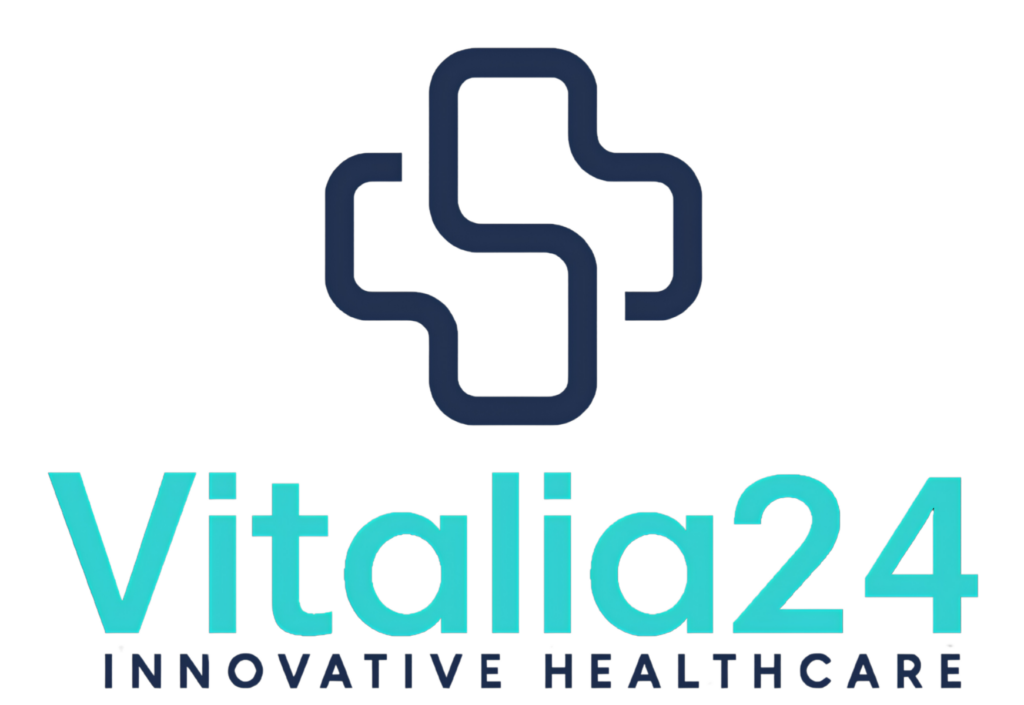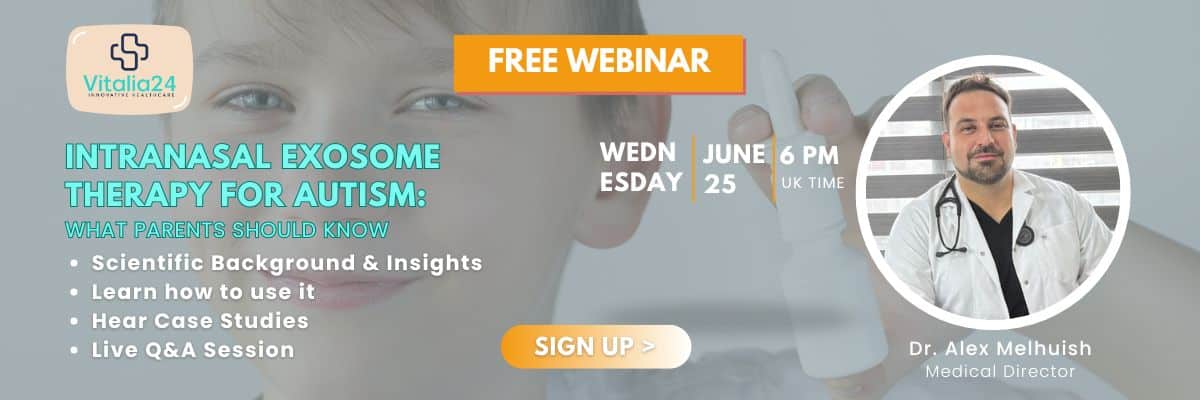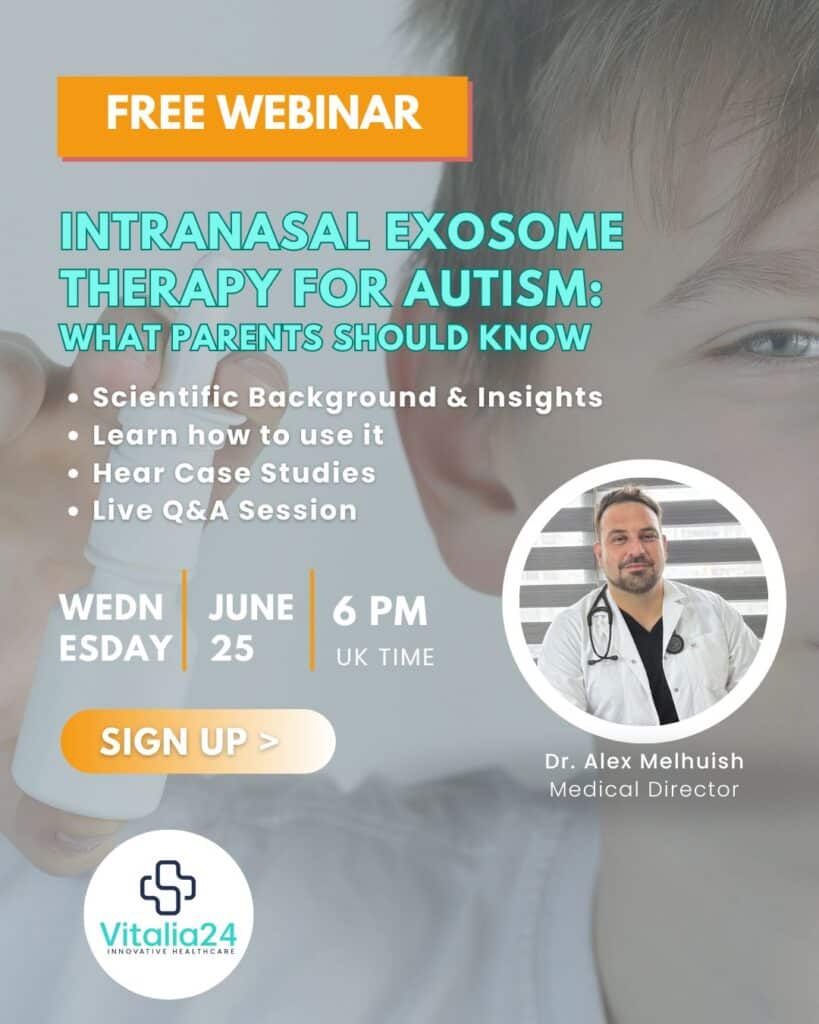Solutions for Autism
Autism, or Autism Spectrum Disorder (ASD), is a complex neurodevelopmental condition characterized by differences in social communication and the presence of repetitive behaviors or restricted interests. The term “spectrum” reflects the wide variation in challenges and strengths possessed by individuals with autism.
Even though it seems there is no cure for autism, there is a way to improve the health and quality of life of children affected by ASD: Discover the Treatment based on the use of Mesenchymal Cells and Exosomes offered by Vitalia24.
Core Features of Autism
Treating Autism Spectrum Disorder (ASD) with MS Cells and Exosomes
Clinical trials investigating the use of cells and their exosomes for autism treatment are grounded in their potential to address underlying biological abnormalities associated with Autism Spectrum Disorder (ASD). The scientific basis for these trials revolves around the regenerative, anti-inflammatory, and immunomodulatory properties of cells and their exosomes.

Overcoming Social Communication Challenges
How to overcome difficulties with Social Interactions: Individuals with autism may struggle with understanding social cues such as facial expressions, body language, and tone of voice. Communication Difficulties: This can range from being non-verbal to having difficulties with the pragmatic aspects of language, such as understanding jokes or taking turns in conversation.
With MS Cell Therapy, particularly with the use of Mesenchymal Cells, Neuroprotection and Repair can be achieved. Furthermore, the Anti-inflammatory Effects of this particular type of cells, can play a significant role in the pathology of autism.
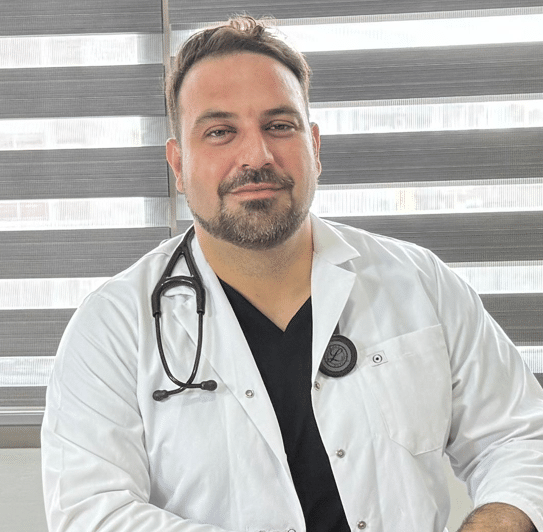
Dr. Alex Melhuish
Medical Director

MSC Cells
- Neuroprotection and Repair: mesenchymal cells (MSCs), can differentiate into various cell types, potentially repairing or replacing damaged neurons. They also release factors that support neural cell survival and neurogenesis (the creation of new neurons).
- Anti-inflammatory Effects: MS cells can reduce neuroinflammation, which is believed to play a significant role in the pathology of autism. By modulating the immune response, they help create a more favorable environment for neural development and function.

Exosomes
- Cell Communication: Exosomes are tiny vesicles that carry proteins, lipids, and RNA, facilitating cell-to-cell communication. Derived from cells, they can deliver therapeutic molecules directly to affected brain areas.
- Immunomodulation: Exosomes have been shown to modulate immune responses, reducing harmful inflammation and potentially improving neurodevelopmental outcomes.
Treating Autism Spectrum Disorder (ASD) with cells and exosomes involves experimental therapies that aim to address the neurological and developmental challenges associated with autism through regenerative medicine techniques.
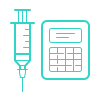
MSC Therapy
MS cell therapy for ASD involves the use of cells, which are undifferentiated cells capable of developing into various cell types. The proposed idea is that these cells can potentially repair or replace damaged neural tissues, modulate the immune system, and reduce inflammation in the brain, which are thought to contribute to the symptoms of autism.
- Types of MS Cells Used: Mesenchymal cells (MSCs) from sources such as bone marrow, Wharton Jelly of Umbilical Cord or adipose tissue are commonly used. These cells are believed to have anti-inflammatory and neuroprotective properties.
- Administration: MS cells can be administered intravenously or intrathecally (directly into the spinal fluid). The method of delivery depends on the specific treatment protocol.

Exosome Therapy
Exosomes are small vesicles secreted by cells, including MS cells, that contain proteins, lipids, and RNA. They play a key role in cell-to-cell communication and can influence various biological processes.
- Mechanism: Exosomes derived from MS cells are thought to carry therapeutic molecules that can help reduce inflammation, promote neurogenesis (the formation of new neurons), and modulate the immune response. This can potentially improve neurological function and behavior in individuals with autism.
- Benefits: The use of exosomes is considered less invasive than direct MS cell therapy and carries a lower risk of immune rejection, as they do not involve the transplantation of whole cells.

Clinical Trials
Ongoing clinical trials are exploring the safety and efficacy of these treatments in individuals with ASD. Early-phase trials focus on safety, dosage, and initial efficacy signals, while later-phase trials aim to confirm benefits and understand the mechanisms involved. Results from these trials will determine if these therapies can be integrated into mainstream autism treatment protocols, offering a novel approach to managing the condition.

Goal
The ultimate goal of using MS cells and exosomes in treating ASD is to improve cognitive function, behavior, and overall quality of life by addressing the underlying biological abnormalities associated with the disorder. However, more research is needed to fully understand their mechanisms and effectiveness.
Our Team
A Professional &
Care Provider

Medical Team
Multilingual Experts

Frank Rothmaier
Founder & Director

Jenny De Bonis
Patient Coordinator

Conclusion
While MS cell and exosome therapies for autism offer exciting potential, they are still experimental. Patients and families should approach these treatments with cautious optimism and consider them within the context of ongoing clinical research and under professional medical advice.
What can be expected treating Autism using MS cells and exosomes?
Autism treatment using MS cells and exosomes is an emerging field of research, and while it holds promise, there are several expectations and considerations to keep in mind:
1. Improved Neural Function: MS cells and exosomes might promote neurogenesis (the creation of new neurons) and repair damaged neural tissues, potentially improving cognitive functions such as attention, learning, and memory.
2. Reduced Neuroinflammation: Both MS cells and exosomes have anti-inflammatory properties that could alleviate neuroinflammation, which is believed to contribute to autism symptoms.
3. Enhanced Communication and Social Skills: By modulating immune responses and repairing neural pathways, these therapies may help improve social interactions, communication skills, and behavioral regulation.
4. Individualized Treatment: Treatments can be tailored to address specific needs and symptoms of individuals, offering a personalized approach to autism care.
1. Variable Outcomes: The effectiveness of stem cell and exosome therapies may vary significantly among individuals due to the heterogeneity of autism.
2. Long-term Efficacy: More research is needed to understand the long-term effects and sustainability of improvements from these treatments.
3. Safety Concerns: While early-phase clinical trials focus on safety, potential risks such as immune reactions, tumor formation, or other unforeseen effects need thorough investigation.
4. Regulatory and Ethical Issues: These therapies are still in experimental stages, requiring rigorous clinical trials and regulatory approval before becoming widely available. Ethical considerations regarding the source and use of stem cells also need to be addressed.
What is the success rate treating Autism with MS cells and exosomes?
As of now, the rate of success in treating Autism Spectrum Disorder (ASD) with MS cells and exosomes remains uncertain due to the experimental nature of these therapies. The field is still in its early stages, and definitive conclusions about their efficacy cannot yet be drawn. However, here are some insights based on current research and clinical trials:
1. Early-phase clinical trials have shown some promising results, indicating potential improvements in social behavior, communication skills, and cognitive functions in a subset of participants. However, these studies are often small-scale and preliminary.
2. Case Reports: Some individual case reports and small studies have documented significant improvements in certain children treated with MS cells or exosomes. These improvements include better eye contact, increased attention span, and improved language skills.

1. Lack of Large-Scale Studies: There are few large-scale, randomized, controlled trials that provide robust evidence of the efficacy and safety of MS cell and exosome therapies for autism. Most studies so far have involved small sample sizes and varying methodologies.
2. Variability in Response: Responses to treatment can be highly variable, with some individuals showing noticeable improvements while others may see little to no change. This variability makes it difficult to establish a clear success rate.
3. Short-Term Follow-Up: Many studies have only short-term follow-up periods, making it challenging to assess the long-term effectiveness and safety of these treatments.
1. Cautious Optimism: Researchers and clinicians remain cautiously optimistic about the potential of stem cell and exosome therapies but emphasize the need for more rigorous and extensive research.
2. Ethical and Regulatory Considerations: Ethical concerns and regulatory hurdles also play a role in the slow progress of these treatments from experimental stages to mainstream clinical practice.
Watch our Free Online Webinars
Is there a better path forward for children with autism?
More and more families believe the answer is yes — and it starts with Stem Cell Therapy.
In this online webinar, Dr. Alex explains how Mesenchymal Stem Cells (MSC) are transforming care for children with autism. What you’ll learn:
- The science behind MSC therapy
- Real case studies & results
- Why treatments are done in Turkey — and how it works
- A&Q Session
Other videos you might be interested in:
Can Stem Cell Therapy be the breakthrough Treatment for Autism?
Dr. Alex answers and explains
In this exclusive interview, Dr. Alex explains how MSC Therapy (Mesenchymal Stem Cell Therapy) is offering new hope to families and parents of children affected by ASD.
What You’ll Learn:
✅ How MSC Therapy works for autistic children
✅ Why this treatment is non-invasive and safe
✅ Real results: Improvements seen in children receiving therapy
✅ How parents can explore this revolutionary approach
Can Stem Cell Treatment and Exosome Therapy Help Autism?
Stem Cell Therapy for Autism: What Parents Must Know
In this exclusive interview, Dr. Alex explains if there is an age limit for children with autism to receive Stem Cell Therapy.
Watch the video to discover:
✅ How MSC Therapy works for autistic children
✅ Why this treatment is non-invasive and safe
✅ Real results: Improvements seen in children receiving therapy
✅ How parents can explore this revolutionary approach
